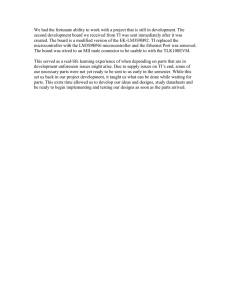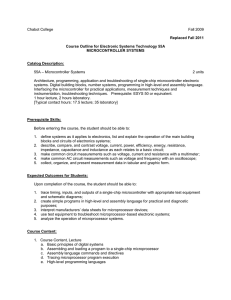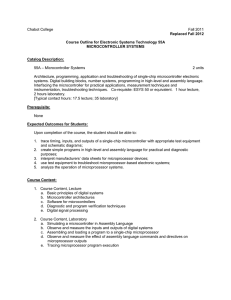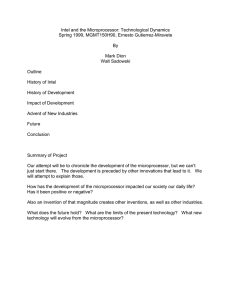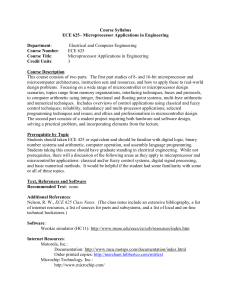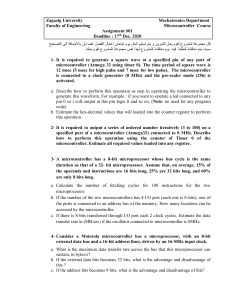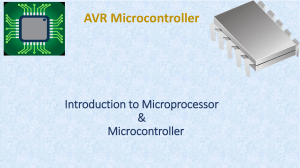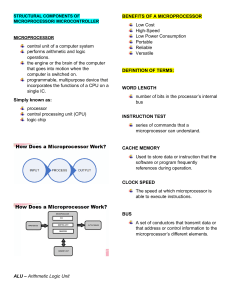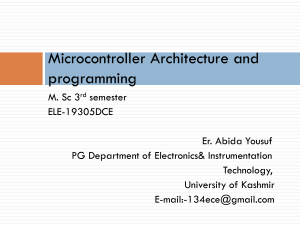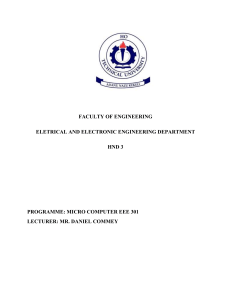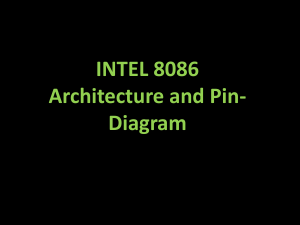EE 413- Microprocessor Based Process Control
advertisement
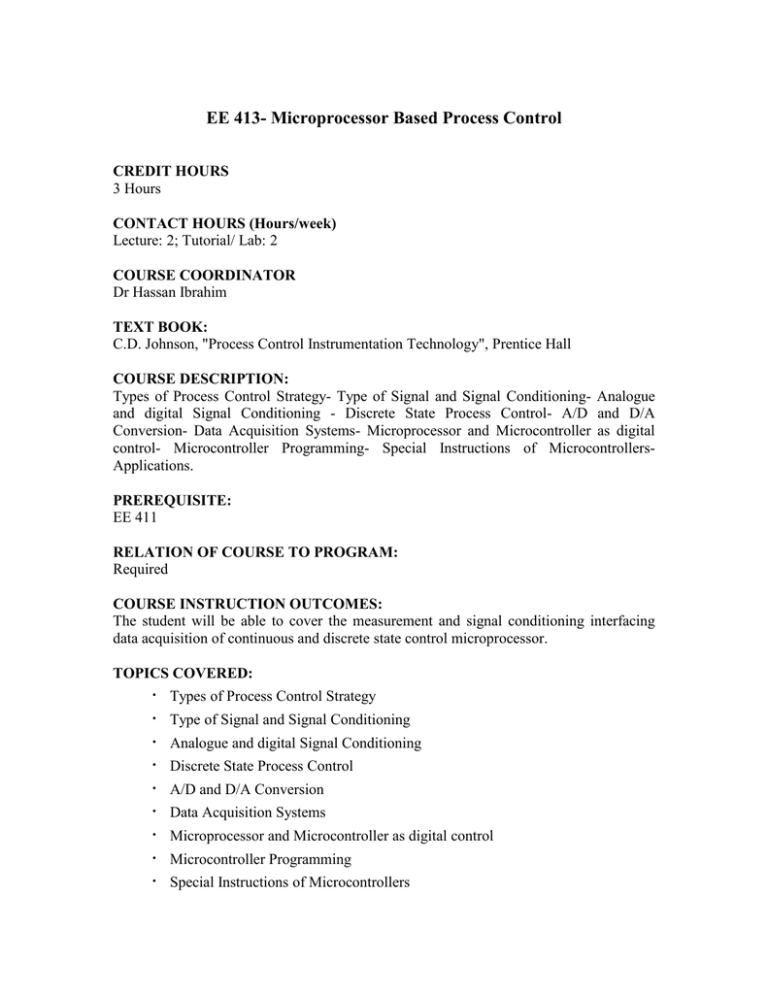
EE 413- Microprocessor Based Process Control CREDIT HOURS 3 Hours CONTACT HOURS (Hours/week) Lecture: 2; Tutorial/ Lab: 2 COURSE COORDINATOR Dr Hassan Ibrahim TEXT BOOK: C.D. Johnson, "Process Control Instrumentation Technology", Prentice Hall COURSE DESCRIPTION: Types of Process Control Strategy- Type of Signal and Signal Conditioning- Analogue and digital Signal Conditioning - Discrete State Process Control- A/D and D/A Conversion- Data Acquisition Systems- Microprocessor and Microcontroller as digital control- Microcontroller Programming- Special Instructions of MicrocontrollersApplications. PREREQUISITE: EE 411 RELATION OF COURSE TO PROGRAM: Required COURSE INSTRUCTION OUTCOMES: The student will be able to cover the measurement and signal conditioning interfacing data acquisition of continuous and discrete state control microprocessor. TOPICS COVERED: • • • • • • • • • Types of Process Control Strategy Type of Signal and Signal Conditioning Analogue and digital Signal Conditioning Discrete State Process Control A/D and D/A Conversion Data Acquisition Systems Microprocessor and Microcontroller as digital control Microcontroller Programming Special Instructions of Microcontrollers CONTRIBUTION OF COURSE TO MEET THE REQUIREMSNTS OF CRITERION 5: Math and Basic Sciences Professional Component Content Engineering General Topics Education Engineering Design RELATIONSHIP OF COURSE TO STUDENT OUTCOMES: Student Outcomes a. b. c. d. e. f. g. h. i. j. k. An ability to apply knowledge of mathematics, science, and engineering. An ability to design and conduct experiments, analyze and interpret data. An ability to design a system, component, or process to meet desired needs within realistic constraints such as economic, environmental, social, political, ethical, health and safety, manufacturability, and sustainability. An ability to function on multi-disciplinary teams. An ability to identify, formulate, and solve engineering problems. An understanding of professional and ethical responsibility. An ability to communicate effectively. The broad education necessary to understand the impact of engineering solutions in a global, economic, environmental, and societal content A recognition of the need for, and an ability to engage in life-long learning. A knowledge of contemporary issues within and outside the electrical engineering profession. An ability to use the techniques, skills, and modern engineering tools necessary for electrical engineering practice. Course Outcomes
